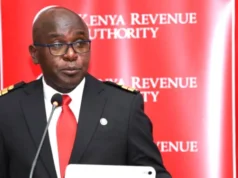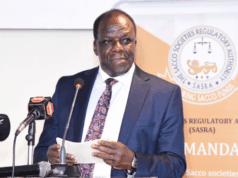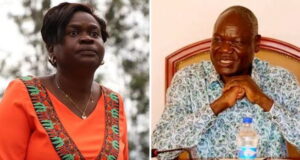Kenya is inching closer to a historic economic turning point. The country is on track to become a full fledged oil exporter, with commercial production set to commence in the coming years. Crude oil from South Lokichar in Turkana County is expected to flow through the planned Lokichar Lamu pipeline, an 825 kilometre artery capable of transporting up to 80000 barrels of oil per day.
If timelines hold, the first commercial exports could kick off between 2025 and 2026. For a country struggling with ballooning public debt, chronic revenue shortfalls, and widening fiscal deficits, the promise of oil could not come at a more critical moment. With every supplementary budget and every new Finance Bill, it becomes more apparent that Kenya’s tax base alone cannot sustain its growing appetite for expenditure. The prospect of oil revenue injects hope and hard currency into an economy under immense pressure.
Yet, this is not Kenya’s first brush with oil dreams. In August 2019, the country shipped its maiden 200,000 barrels of crude oil worth 12 million dollars to Malaysia. It was a test, a symbolic step signaling that Kenya had joined the ranks of oil producing nations. That milestone came seven years after the 2012 discovery of commercially viable oil reserves in Turkana, estimated at 560 million barrels.The upcoming phase, however, is different.
This time, it is not symbolic. It is about sustained, large scale commercial production and that brings with it a different scale of opportunity and responsibility. Oil revenue could be transformational if managed with discipline and transparency. It offers a new fiscal lever, one that could ease the tax burden on ordinary citizens, fund infrastructure projects, support social safety nets, and bolster foreign exchange reserves. Done right, it could shift the trajectory of the economy and accelerate Kenya’s march toward middle income status.
But oil is as much a curse as it is a blessing. History across Africa is littered with nations that were lifted and ruined by the very resource they hoped would save them. From Nigeria to Angola, mismanagement, corruption, and overreliance on oil revenue created distorted economies and fragile democracies.Kenya must not fall into that trap. As we prepare to extract wealth from Turkana’s drylands, we must also prepare the institutional architecture to manage it. This includes transparent revenue sharing mechanisms with host communities, a Sovereign Wealth Fund with clear oversight, and legislation that compels accountability.Moreover, the geopolitical and environmental realities of oil must not be ignored. The global push toward clean energy is gaining speed.
Oil prices are volatile, subject to political disruptions and market dynamics. Betting the entire economy on oil is a risky proposition in a world racing toward decarbonization.Kenya must treat oil as a bridge, not a crutch, a tool to stabilize and diversify the economy, not one to replace sound fiscal planning or long term investment in knowledge, technology, and green energy.
For Turkana County, historically marginalized and underdeveloped, oil brings an unprecedented opportunity for inclusion. But only if the people of Turkana are seen not as spectators but as shareholders. They must benefit directly from the resource under their feet, through infrastructure, education, healthcare, and employment.
The oil dream is alive once again, but the dream must come with a plan. Kenya must rise to this occasion not with hubris, but with humility, discipline, and foresight.The opportunity is enormous. The consequences of failure, even bigger. Let oil not be our undoing, let it be our turning point.















